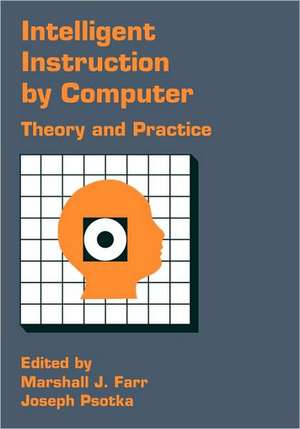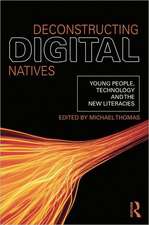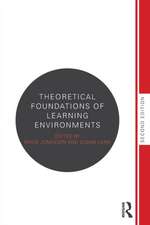Intelligent Instruction Computer: Theory And Practice
Editat de Marshall J. Farr, Joseph Psotkaen Limba Engleză Paperback – feb 1992
Preț: 463.02 lei
Preț vechi: 544.73 lei
-15% Nou
Puncte Express: 695
Preț estimativ în valută:
88.60€ • 92.74$ • 73.74£
88.60€ • 92.74$ • 73.74£
Carte tipărită la comandă
Livrare economică 31 martie-14 aprilie
Preluare comenzi: 021 569.72.76
Specificații
ISBN-13: 9780844816876
ISBN-10: 0844816876
Pagini: 292
Dimensiuni: 178 x 254 x 15 mm
Greutate: 0.51 kg
Ediția:1
Editura: Taylor & Francis
Colecția Routledge
Locul publicării:Oxford, United Kingdom
ISBN-10: 0844816876
Pagini: 292
Dimensiuni: 178 x 254 x 15 mm
Greutate: 0.51 kg
Ediția:1
Editura: Taylor & Francis
Colecția Routledge
Locul publicării:Oxford, United Kingdom
Notă biografică
Marshall J. Farr, Joseph Psotka
Cuprins
Introduction. Part 1 Theoretical approaches: apprenti ceship training in the workplace - computer-coached practice environment as a new form of apprenticeship; automated tutoring in interactive environments - a task- centred approach. Part 2 Tools and environments: two approaches to simulation composition for training. Part 3 Implementations and evaluations: semantically constrained exploration and heuristic guidance; transfer, adaptation and use of intelligent tutoring technology - the case of Grace. Part 4 Implications for future research and development.
Descriere
This text records the dramatic new prospects for computers in instruction in school, the workplace and high technology research facilities. If offers teachers and trainers a vision of how their professions will be fundamentally altered by these new systems and how their roles will be changed. The challenges and opportunities exposed by these developments in intelligent instruction by computer are many. Topics discussed include: apprenticeship and training in the workplace; automated tutoring in interactive environment; two approaches to simulation composition for training; and transfer, adaption, and use of intelligent tutoring technology.












